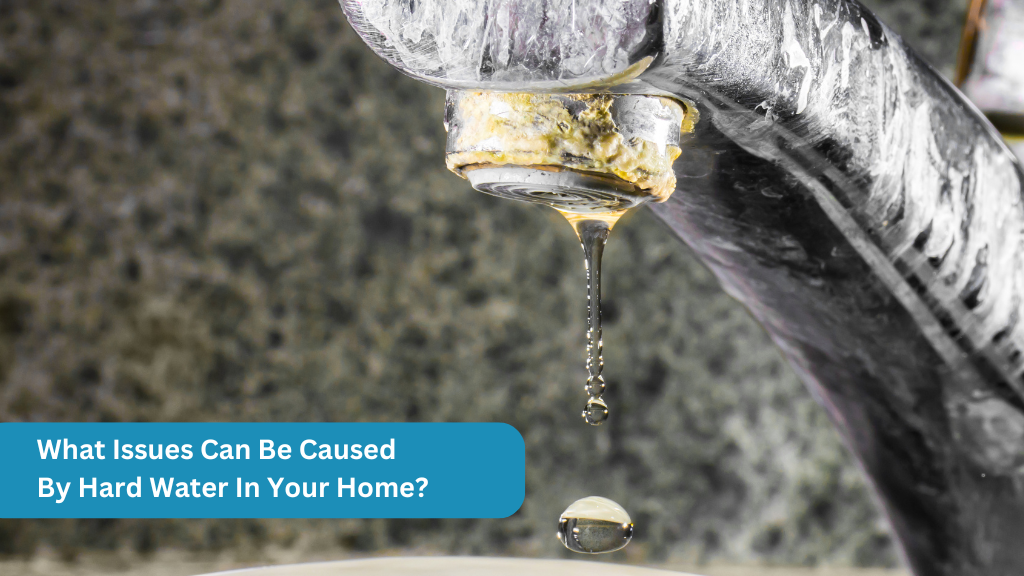As defined by Ada McVean of McGill University, hard water is water that contains high concentrations of dissolved minerals. We’re talking calcium or magnesium carbonates, chlorides or sulphates. Although it may be easy to assume that drinking hard water can be dangerous, it is actually the opposite.
McVean reveals that studies have shown “that calcium and magnesium in drinking water have a dose-dependent protective effect when it comes to cardiovascular disease. There is also some evidence that calcium and magnesium in drinking water may help protect against gastric, colon, rectal cancer and pancreatic cancer.” Considering this, why is it so important to install a water softener in your home? Well, there are a number of issues that can be caused by hard water.
Skin dryness and irritation.
Hard minerals strip the natural oils from your skin. They disrupt its pH balance and weaken the protective barrier. Washing with hard water often leads to dryness, tightness, redness and itchiness. This is only exacerbated by frequent showers and handwashing. It is also known to worsen bouts with eczema, dermatitis and acne. Hard water residue clogs pores, increasing acne and skin flare-ups.
“Over time, hard water can compromise the skin barrier, hindering its ability to keep out external aggressors and making it more prone to inflammation, itching and rashes,” writes Caelan McMichael of ELLE Canada Magazine, “Some people might even notice recurrent redness every time they shower or wash their face.”
Premature aging and hair damage.
Mineral deposits can accelerate oxidative skin damage, contributing to fine lines and wrinkles. In addition, hair that is washed in hard water often becomes dull, brittle, tangled and prone to breakage. Scalp irritation and slowed growth are also possible. Sarah Kester of Healthline reveals that a 2016 study involving 15 females found that hard water damaged hair.
“This was found after washing hair samples in both hard water and distilled water for 30 days,” she informs, “At the end of the study, the hair from the hard water samples had decreased in thickness, in addition to having a ruffled appearance. Additional hair symptoms you may experience from washing your hair in hard water include: breakage, thinning, tangles, dry scalp, dullness, brassiness or a green hue (and) frizziness. Some people have even experienced hair loss as a result of hair breakage.”
How does a water softener make a difference?
A water softener works to remove minerals like calcium and magnesium from the water flowing from your taps. Generally, a water softener is installed in the basement on the main water line. As a result, all of the water that is supplied to your home is treated. Residents of Toronto and Durham Region find that their water softeners protect their hair and skin. This is because soft water rinses away soap and residue more easily. It reduces dryness, irritation, acne and hair damage.
A water softener supports sensitive skin. It may not reverse eczema in someone already diagnosed. However, it can relieve irritation and dryness in sensitive skin and make skincare products more effective. With soft water, soap lathers properly, shampoos rinse clean and skincare beads absorb better.
Is hard water causing your family issues?
Not to worry! 2 Bro’s Plumbing offers professional water softener installations across Durham Region. Since 2015, we’ve helped families enjoy softer water that’s better for plumbing, skin and appliances. Our team will assess your water needs and install a system that fits your home perfectly. Please don’t hesitate to give us a call at 905-556-0790 or email us at admin@2brosplumbing.ca today to schedule your water softener installation!



